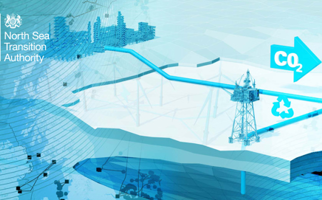
-
Company flared and vented greenhouse gas without consent
-
Offences took place at Auk North, Halley and Fulmar fields
-
Fine is the highest to date from North Sea Transition Authority
An oil and gas operating company has been given the highest fine the NSTA has issued to date for emitting greenhouse gases into the atmosphere without permission.
Repsol has been fined £160,000 by the North Sea Transition Authority (NSTA) for flaring and venting more than 73 tonnes of gas.
The fine recognises that Repsol’s failure undermines public trust and confidence in the industry and raises questions about the company’s attention to, and investment in, regulatory compliance.
The NSTA has repeatedly told the UK oil and gas industry that meeting regulatory obligations is vital for sustaining the industry’s social licence to operate and has the potential to undermine public confidence.
The industry has responded well to the call to reduce emissions and has near halved North Sea flaring in four years as part of ongoing work which has seen greenhouse gas emissions in total cut by 23% between 2018 and 2022.
Industry has been challenged to look at ways in which it can continue to reduce its emissions in a formal consultation on the OGA Plan which looks into four areas of its business – investment and efficiency, platform electrification and low carbon power, inventory and flaring and venting.
Repsol, which operates the Fulmar facility, east of Dundee in the Central North Sea, has received short-term flare and vent consents since January 2019 to cover necessary actions associated with post cessation of production activities on Fulmar, Auk North, and Halley.
Since July 2020, the short-term consents have noted the fact that the main users of the Fulmar platform are now third parties, and the Fulmar facility is providing oil and gas processing facilities for third parties.
On 1 July 2022, the NSTA informed Repsol that there were no valid consents in place for Auk North, Halley, and Fulmar. The NSTA told the company that continuing to flare or vent after consent expired on 30 June 2022 would be a failure to comply with regulatory requirements.
Jane de Lozey, NSTA Director of Regulation, said:
“Reducing emissions and meeting regulatory requirements is absolutely essential if industry is going to maintain its social licence to operate.
“Repsol has engaged with the NSTA to learn from its failings on this occasion and taken steps to ensure it does not happen again.
“We will continue to ensure that operators comply with regulations in the North Sea and will not hesitate to take action on the occasions that they do not. The NSTA is always ready to work with operators to ensure they remain in compliance, or bring them back into compliance.”
The penalty is decided by reference to the NSTA’s Financial Penalty Guidance which states that a penalty should be:
- Effective in addressing the underlying cause of the failure to comply
- Dissuasive of future failure to comply
- Proportionate to the significance of the failure
Notes to editors:
- The company which has received the fine is Repsol North Sea Limited, previously known as Repsol Sinopec North Sea Limited.
- The financial penalty of £160,000 must be paid to the NSTA before it is submitted to the consolidated fund. It must be paid within 30 days of the sanction notice which was issued on 5 December 2023.
- https://www.nstauthority.co.uk/media/8488/sanction-procedure.pdf The maximum fine that could have been imposed is £1million
- The OGA Plan
- NSTA Financial Penalty Guidance
- The Energy Act 2016 allows the NSTA to issue a fine which must not exceed £1million
- The highest fine issued previously by the NSTA was £150,000. Operators fined total of £265,000 as NSTA moves to enforce net zero and security of supply requirements
- The 73 tonnes are comprised of 46.8 te of hydrocarbon flaring and 26.8 te of hydrocarbon venting.
- Sanction Notice
For further information please contact:
Tel: 07785 655620


